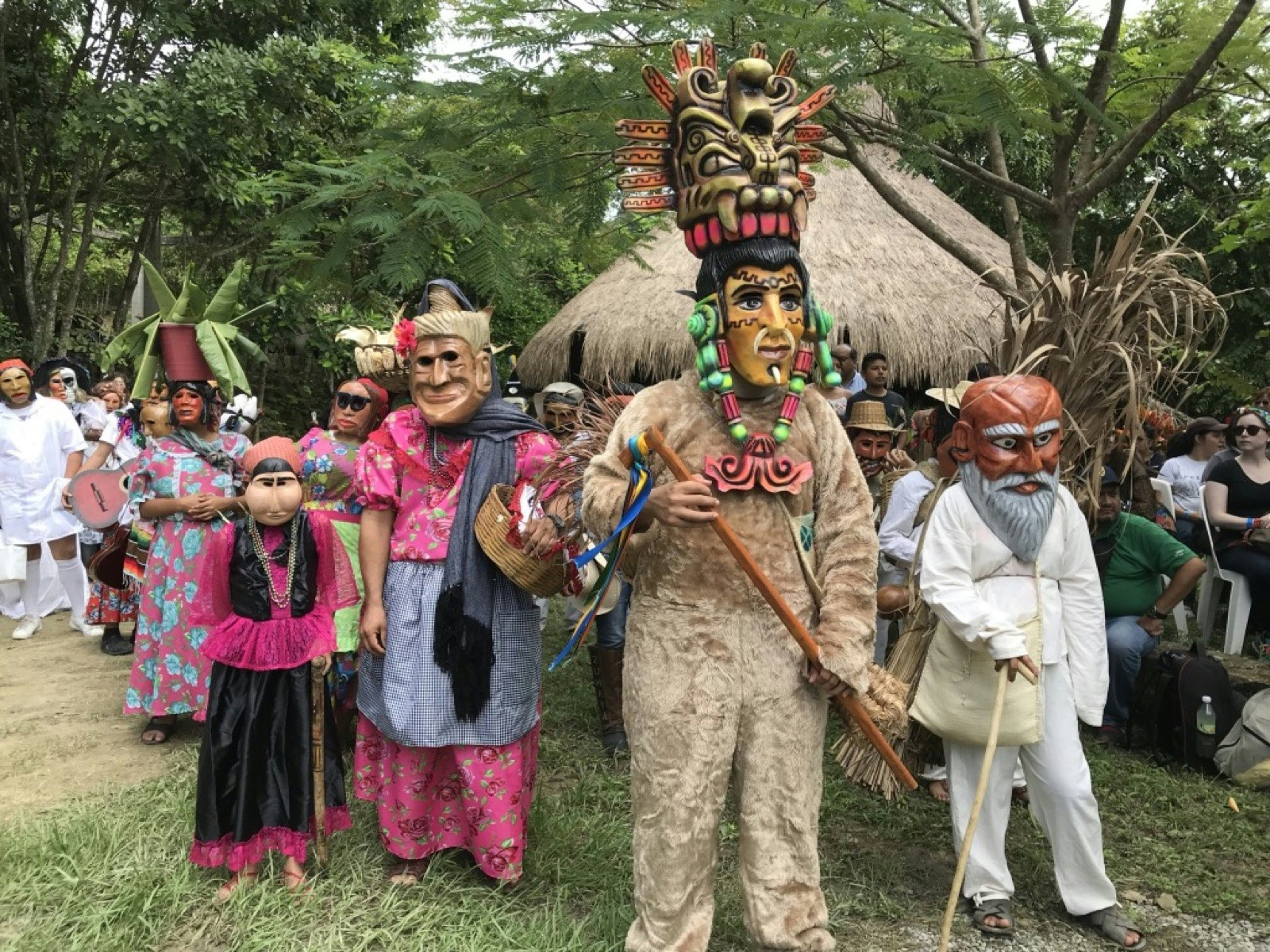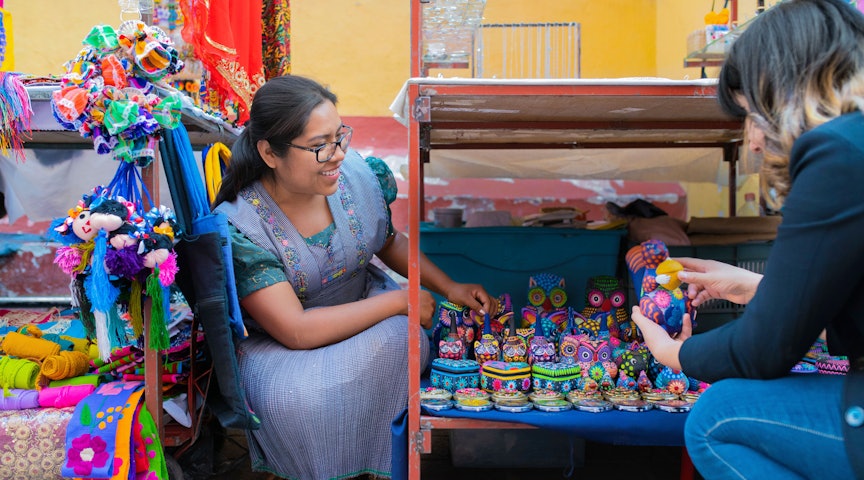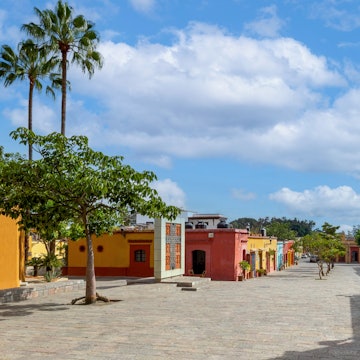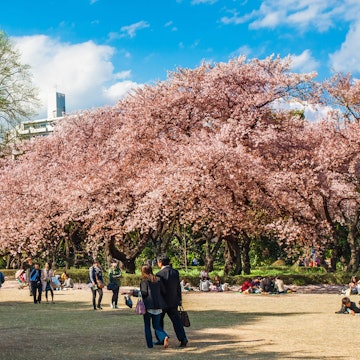
Xantolo: the Dia de Muertos celebration you need to know about

Sep 5, 2019 • 7 min read

With unique festivals that vary from town to town, the best way to experience Xantolo is by road tripping through La Huasteca Potosina © Jennifer Fernández Solano / Lonely Planet
Those who have visited Mexico during the Día de Muertos celebrations may think they’re familiar with the traditions surrounding this special holiday, but chances are they have yet to experience Xantolo, the local Día de Muertos celebration in La Huasteca Potosina.

During Xantolo, a sacred festival that links people to their ancestors, whole towns come alive with performers of all ages dancing along the streets and in town squares wearing elaborate costumes. The festive ambiance is reminiscent of a carnival and the best way to take it all in is on a road trip through the rural towns that preserve the tradition.
Where to start your Xantolo road trip
Your road trip will begin in the state capital, San Luis Potosí. From there, you’ll head to Aquismón, a quaint pueblo located 4-5 hours away that can serve as your home base to explore the area. Xantolo festivities vary from one year to the next, so you may choose to hire a knowledgeable local guide.
They will drive you from town to town chasing Xantolo festivities along winding mountain roads while also providing information on where the best performances are taking place. Miguel Galárraga from Auténtico San Luis partners with his colleague, El Barbas, to offer a complete Xantolo experience. However, if you prefer to head out on your own, here are our best tips.
Aquismón – your home base for the weekend
One of three Magical Towns in the state of San Luis Potosí, Aquismón has a charming town square that livens up with nightly performances during Xantolo. After checking in at your hotel, wander to the town square, where Catrina statues in bright dresses stand at attention. Colorful papel picado (paper banners) flitter above the streets while musicians play traditional tunes for the comparsas – groups of dancers in costume.
After soaking up the atmosphere and watching the dancers for a while, get your traveling crew back together to continue your road trip.

A colorful castle in Ahuacatitla
Follow the road signs and head to Castillo de la Salud de Beto Ramón in Ahuacatitla, roughly 25 miles away (a 50-minute drive) from Aquismón. You’ll want to stop by Beto Ramón’s Health Castle for several reasons. One is the sheer size and uniqueness of the property: decked in bold colors in a somewhat kitsch décor, this temple to alternative medicine will make you feel like you’re visiting the Huasteca’s version of Disneyland.
During Xantolo, the property is decorated to fit the occasion and is home to the area’s largest and most lavish Día de Muertos ofrenda. Beto Ramón may have passed away, but his family continues to share his knowledge of herbal therapies.
Which brings us to the other reason you’ll want to stop by, Ramón’s family opens the home for visitors to admire the ofrenda and also offer a traditional zacahuil dinner. Zacahuil is the signature dish of La Huasteca Potosina – known as the tamale of all tamales, this smoky, meaty dish varies in size depending on the crowd, but has been known to feed up to 70 people.
After dinner, it’s time for the main event of the night: a visit to the cemetery.
Cemetery in Copalo
It’s true that Xantolo celebrations aren’t limited to visiting a cemetery during Día de Muertos, but that doesn’t mean you should skip it even if you’ve taken part in similar experiences in Oaxaca, Michoacán or Mexico City’s outskirts.
From Beto Ramón’s Health Castle, take the Primero de Mayo road to the southeast for 25 minutes (roughly 9 miles) and you’ll arrive at the Panteón Ejidal de Chalco, in Copalo. This cemetery has very few tourists, which will make you feel privileged to be able to witness the revelry. Dress respectfully, locals in most parts of the country wear long pants, jeans or longer skirts and it’s always a good idea to try to blend in as much as possible.
The best time to visit is near midnight when the families gather to commune with their dead. You’re welcome to wander through the tombstones and observe quietly, but keep a respectful distance. Feel free to take photos from afar, but do ask if you want to get a closer shot of the tombs or of the families holding vigil. Work your way to the “stage” area to watch the dances. Soon enough, music will seem to come from everywhere as several bands play in different corners of the cemetery while children throw firecrackers. Rather than a solemn affair, families quickly begin dancing around tombstones creating a party atmosphere.
The drive back to Aquismón will take about an hour and a half, so keep this in mind when deciding how long to stay at the cemetery.

Breakfast at Huehuetlán
Start day 2 at Huehuetlán, “the place of the old people,” where you’ll find a rural restaurant serving regional enchiladas and huevos enhojados – fried eggs cooked inside a banana leaf – a play on words as the “h” is silent in Spanish and the name of the dish sounds as though you’re saying that the eggs are angry or annoyed.
To find them, head uphill along Benito Juárez from Plaza Huehuetlán, a square with a huge tree at the center. They will be on the left hand side of the street in a courtyard with large tables. Another culinary highlight of the small town is sampling flavored fruit liqueurs at the Morales Castillo family home, right in front of the big tree on the square – you can purchase some to take home, the mandarine flavor was particularly tasty.
Tamaletom – official ceremony with the Mayor
Head to the Centro Ceremonial de Tamaletom, where the official Xantolo ceremony is held each year. Comparsas (groups of performers that sing and dance) donning Catrina – fancy skeleton costumes – or elborately dressed as the elderly parade merrily across a lawn. Meantime, groups of teenagers in devil costumes dubbed, coles, taunt audience members and the Voladores de Tamaletom perform the dance of the hawk by descending from a pole as if flying.
After the ceremony, head back to the car and continue the drive on to Chapulhuacanito.

Nightime in Chapulhuacanito
You’ve probably worked up an appetite by now, so have some esquites – corn prepared with mayonnaise, lime and chile powder. Or grab some tacos al pastor and churros at one of the many street stalls by the iconic letters spelling out the name of the town.
When you get to the town square, you’ll notice that many of the children in Chapulhuacanito perform in comparsas, alongside scores of adults wearing the typical mask of the region – a bull-devil looking creature. Once someone joins a comparsa, they make a commitment to dance during Xantolo for at least 7 years.
Catrina contest in Aquismón
Back in Aquismón, you may get to see a Catrina contest at the town square. Dozens of girls and women parade in opulent costumes as a panel of judges votes for the best three in the show. A great way to close your Xantolo experience.
Other treats in the area
Make sure you try some pan de canela (cinnamon bread) baked in tuna cans, which gives it its iconic shape. It’s sold on several stalls by the side of the road along Carretera 85, from Ciudad Valles to Matlapa. One of the best stalls is found right before the community of Huichihuayán and they also have an option made with walnuts. They’re so good that you may even want to buy a few more to take home.
Where to stay
Aquismón has a few simple and clean accommodation options where you’ll be able to rest your head after long and eventful days (and nights!) driving from town to town. Hotel San Joaquín’s unrivaled location on the main square will allow you to be in the center of the action, while Hotel Boutique Santa Lucía, nearby, will make you feel right at home with its tasteful décor in bright colors and quintessentially Mexican details.
Jennifer Fernández Solano traveled to San Luis Potosí with support from Visit Mexico. Lonely Planet contributors do not accept freebies in exchange for positive coverage.
Take your Mexico trip with Lonely Planet Journeys
Time to book that trip to Mexico
Lonely Planet Journeys takes you there with fully customizable trips to top destinations – all crafted by our local experts.





















